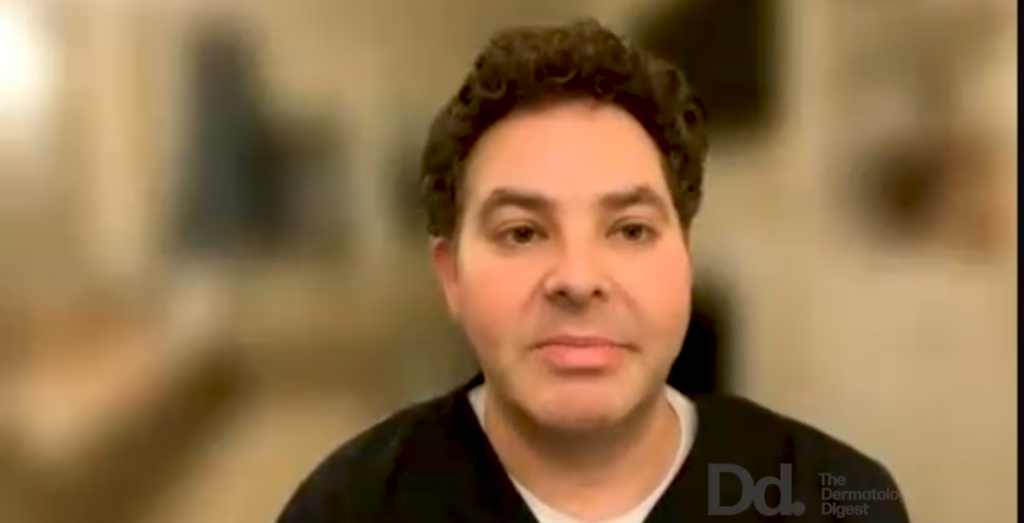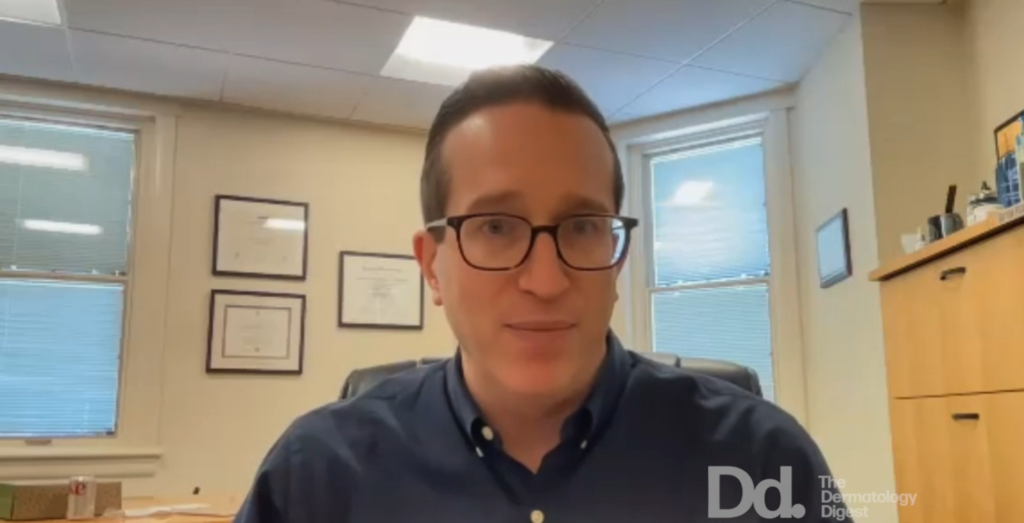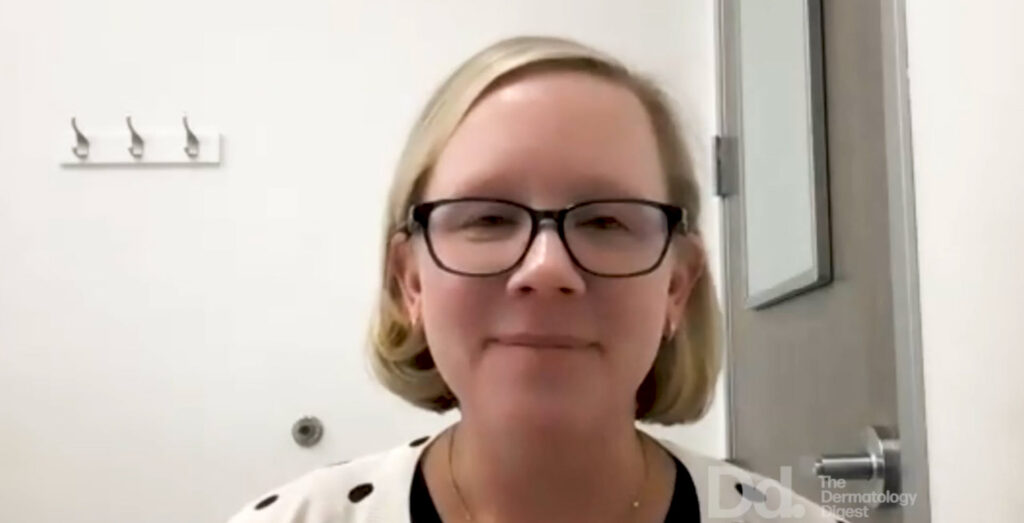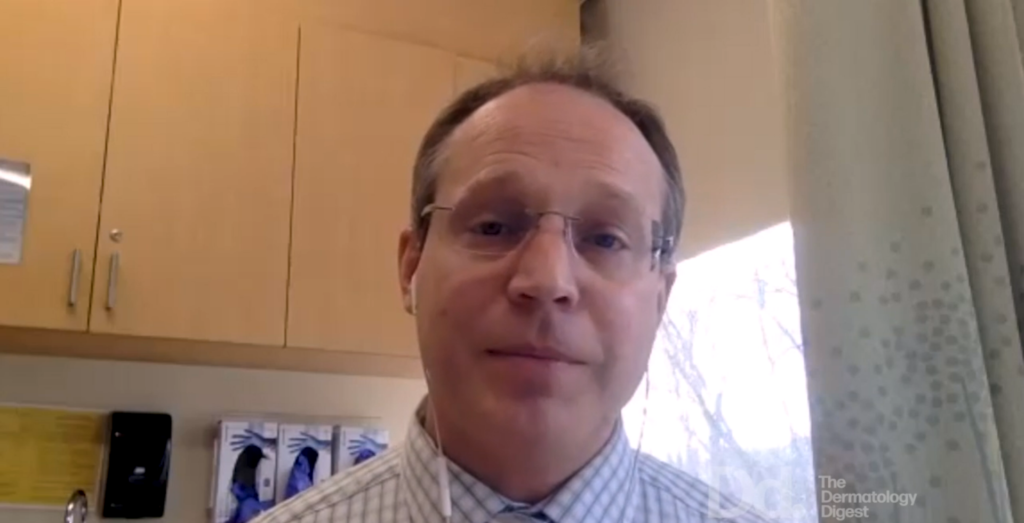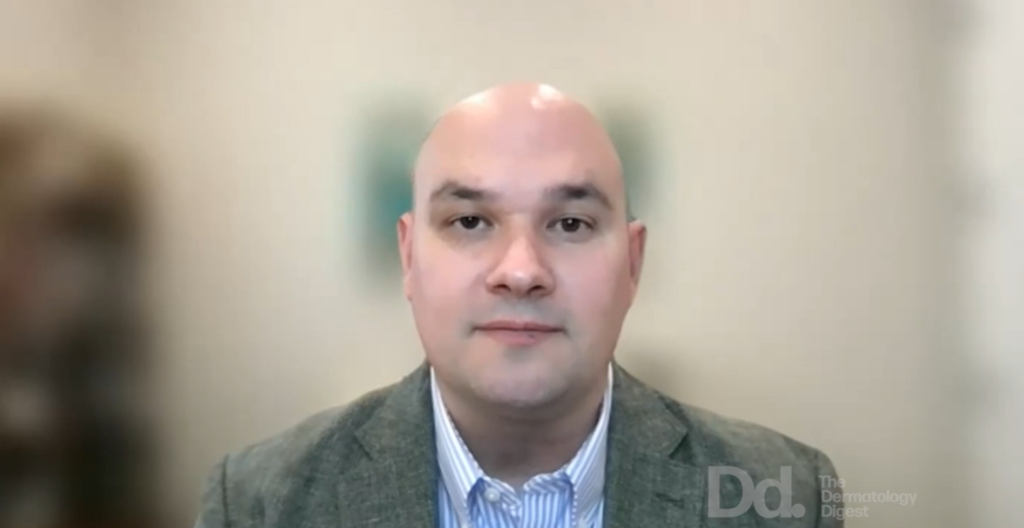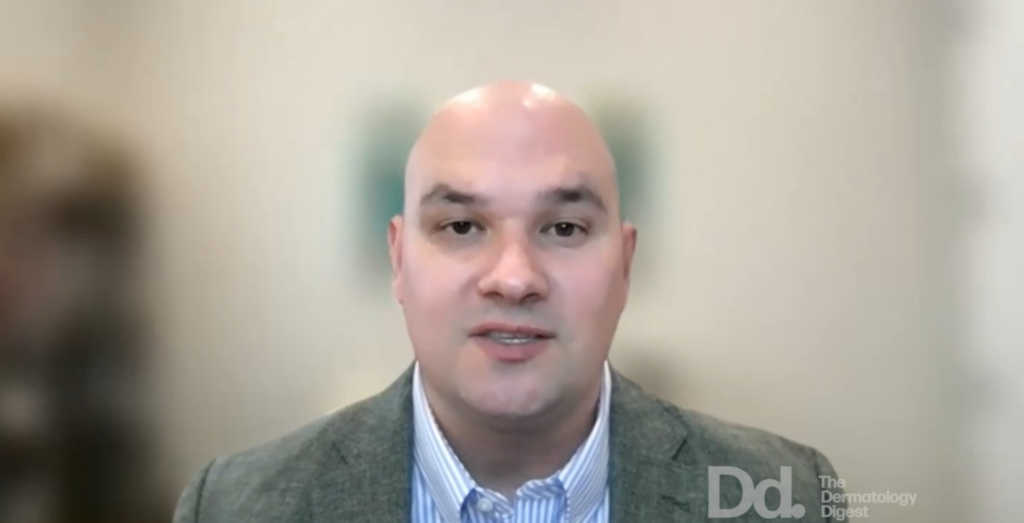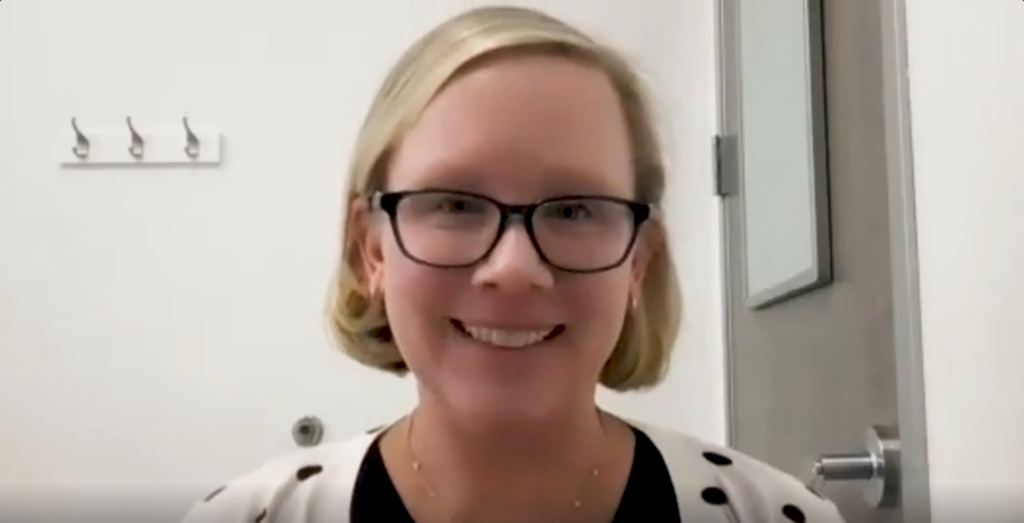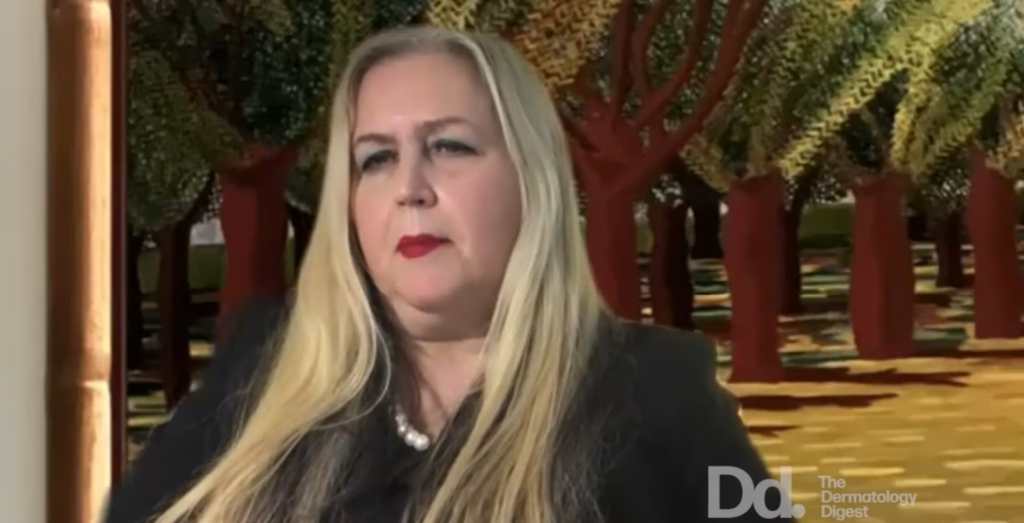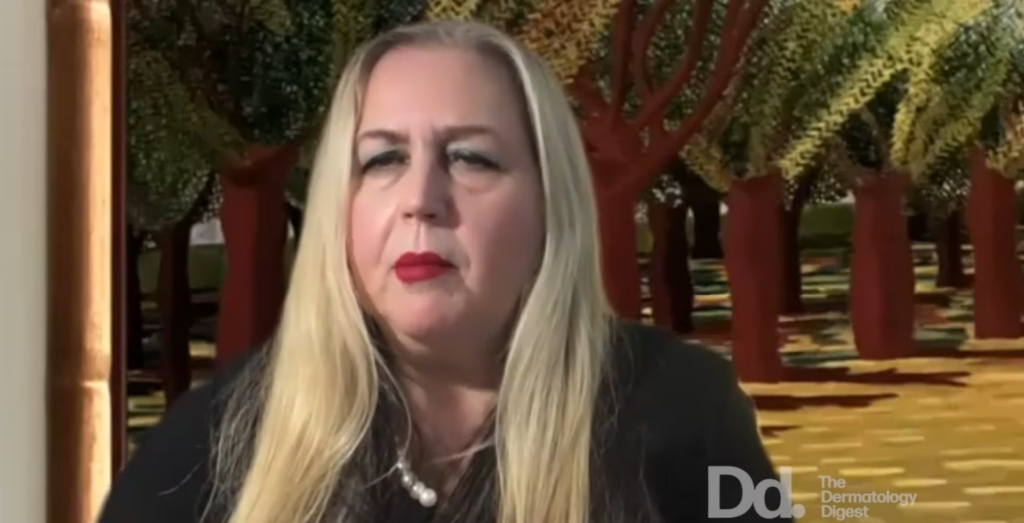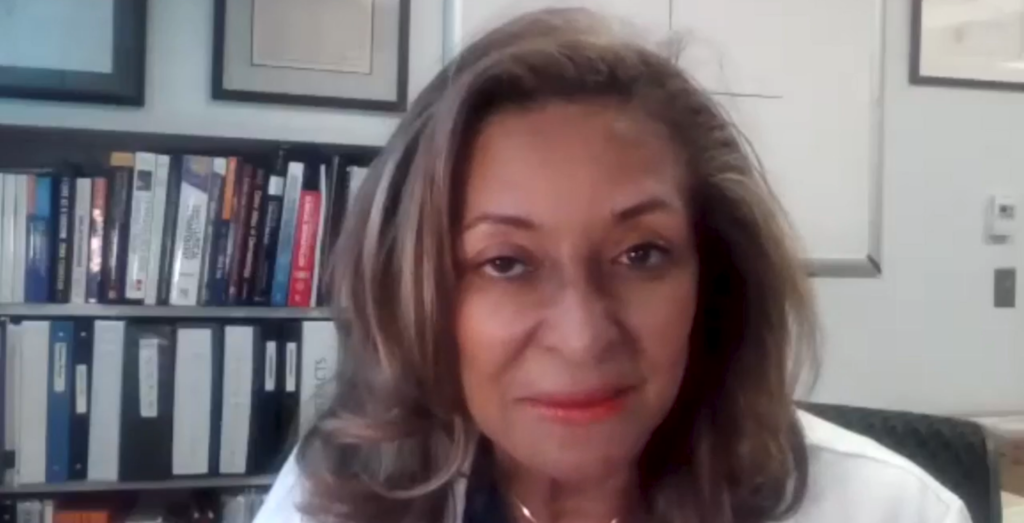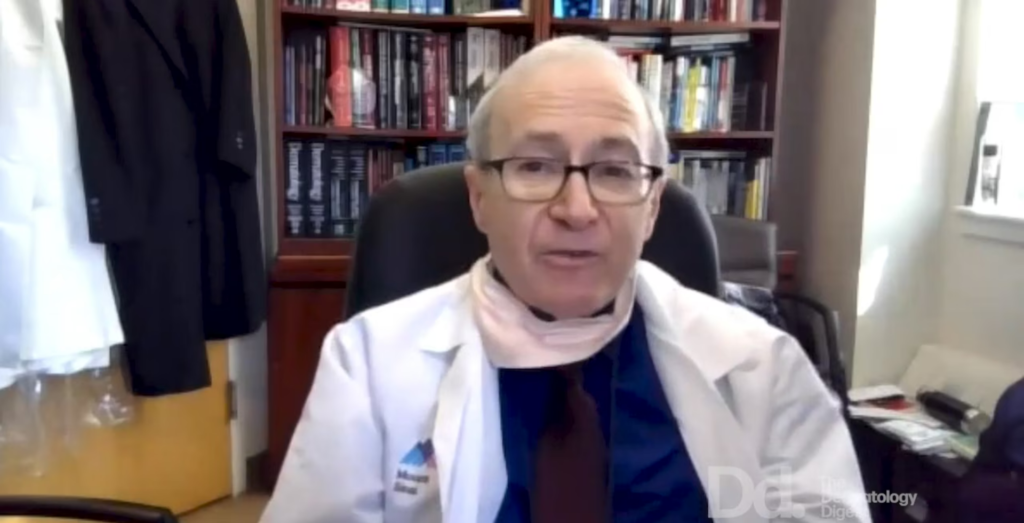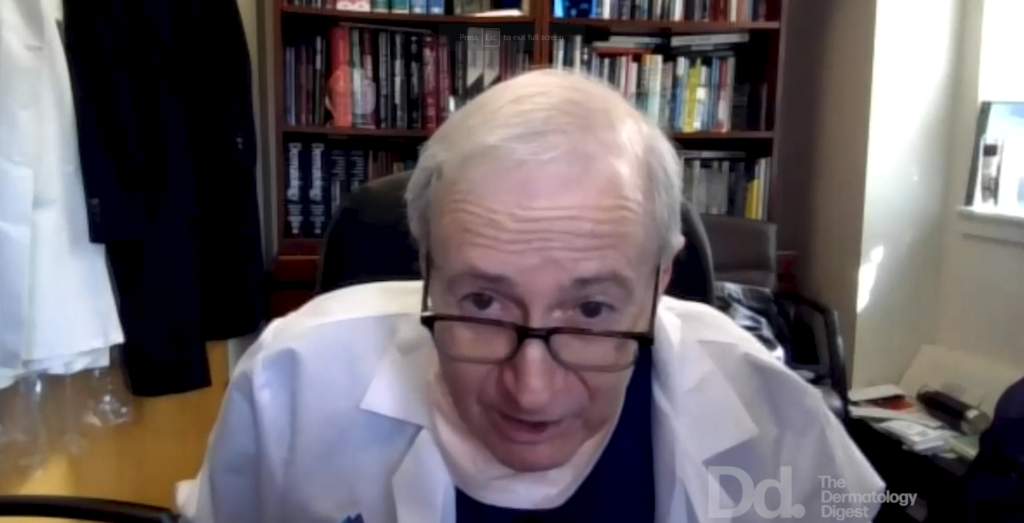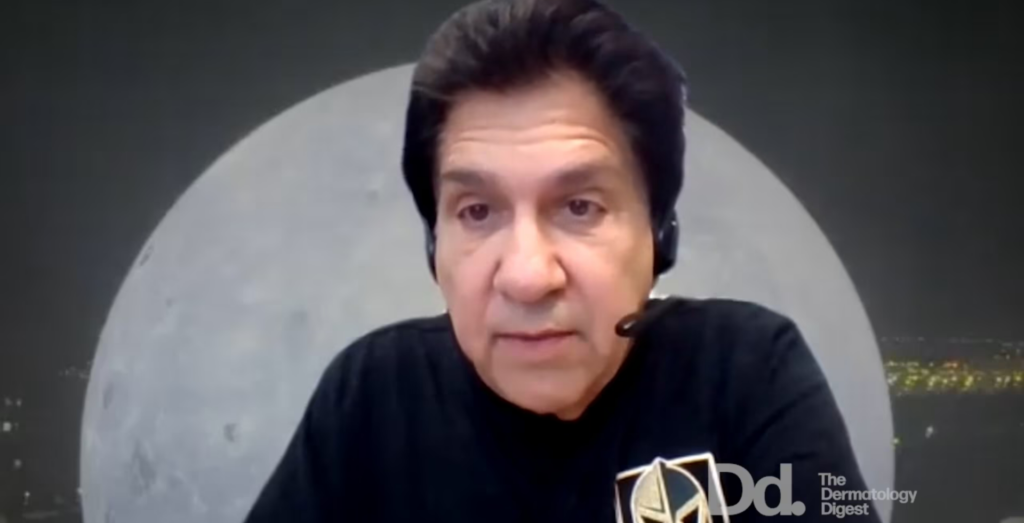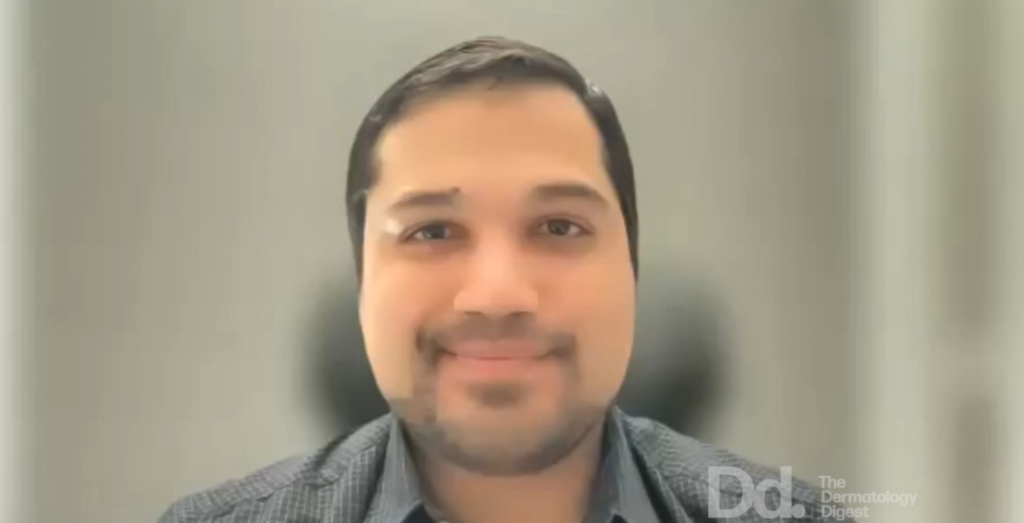
Christopher Bunick, MD, PhD, an associate professor of dermatology at Yale University in New Haven, CT, shares some congenital ichthyosis (CI) cases and discusses the importance of understanding patient and family expectations about CI treatment.
Isotretinoin: Current Thinking and Best Practices
Joshua Zeichner, MD
Joshua Zeichner, MD, Associate Professor of Dermatology at the Mount Sinai Hospital in New York City, reviews the latest information on prescribing and monitoring isotretinoin for patients with severe nodulocystic acne and provides an update on the potential risks associated with this medication.CSU Is for You
Adam Friedman, MD
Adam Friedman, MD, Professor and Chair of Dermatology at George Washington School of Medicine and Health Sciences in Washington, DC, offers up advice on how to work up and treat patients with chronic spontaneous urticaria (CSU).Exploring Emerging Treatments for CSU
Adam Friedman, MD
Adam Friedman, MD, Professor and Chair of Dermatology at George Washington School of Medicine and Health Sciences in Washington, DC, shares his excitement about chronic spontaneous urticaria (CSU) treatments coming down the pike including remibrutinib, Novartis’ investigational oral Bruton’s tyrosine kinase inhibitor.Pro Pearls for Diagnosing Genodermatoses
Elizabeth Swanson, MD
Genodermatoses can masquerade as atopic dermatitis (AD). Elizabeth (Lisa) Swanson, MD, a pediatric dermatologist in Boise, ID, shares three pearls on how to make these important differential diagnoses.Complementary Approaches to Treating Skin and Systemic Malignancy in Cancer Patients
Peter A. Lio, MD
Peter A. Lio, MD, a Clinical Assistant Professor of Dermatology and Pediatrics at Northwestern University Feinberg School of Medicine and a partner at Medical Dermatology Associates of Chicago, offers tips on how to mitigate against some of the paraneoplastic and chemotherapy-induced skin issues seen in cancer patients.Diagnosing AA: Making the Case for Single-cell Profiling
Elizabeth Swanson, MD
Single-cell profiling of alopecia areata (AA) can provide key insights into immune-targeting treatment strategies. Helen He, MD, a Dermatology Resident at the Icahn School of Medicine at Mount Sinai in New York City, shares the results of a late-breaking abstract she presented at the annual meeting of the American Academy of Dermatology in San Diego, CA.Off-label Pearl: Exploring the Role of Narrowband UVB Phototherapy Plus Oral JAK Inhibitors in Vitiligo
Emma Guttman-Yassky, MD, PhD
Adding narrowband ultraviolet B phototherapy to treatment with ritlecitinib (Litfulo, Pfizer) in vitiligo may improve patient outcomes. Emma Guttman-Yassky, MD, PhD, the Waldman Professor of Dermatology and Immunology and Health System Chair of Dermatology at the Icahn School of Medicine at Mount Sinai in New York City, shares results from a late-breaker that she presented at the annual meeting of the American Academy of Dermatology in San Diego, CA.How to Think Like an Ichthyosis Expert
Christopher Bunick, MD, PhD
Christopher Bunick, MD, PhD, an associate professor of dermatology at Yale University in New Haven, CT, shares some congenital ichthyosis (CI) cases and discusses the importance of understanding patient and family expectations about CI treatment.Late-breaking Data: Congenital Ichthyosis Treatment Update
Christopher Bunick, MD, PhD
Christopher Bunick, MD, PhD, an associate professor of dermatology at Yale University in New Haven, CT, discusses Christopher Bunick, MD, PhD, an associate professor of dermatology at Yale University in New Haven, CT, discusses findings from maximal use arm of the phase 3 ASCEND Trial that looked at topical isotretinoin 0.05% (TMB-001) in congenital ichthyosis. The upshot? Topical isotretinoin, even when covering 90% of a patient’s body surface area, showed minimal systemic absorption.Urticaria Update
Jason Hawkes, MD, MS
Chronic spontaneous urticaria (CSU) often has no identifiable trigger and is driven by mast cells, but symptoms are bothersome to patients, highlighting the need for effective treatments, says Jason Hawkes, MD, MS, a dermatologist in Rocklin, CA.Sneak Peek Inside the CSU Treatment Pipeline
Jason Hawkes, MD, MS
Jason Hawkes, MD, MS, a dermatologist in Rocklin, CA, reviews currently available and emerging treatments for chronic spontaneous urticaria (CSU), including dupilumab (Dupixent, Sanofi, and Regeneron Pharmaceuticals), remibrutinib, Novartis’ investigational oral Bruton’s tyrosine kinase (BTK) inhibitor, other BTK inhibitors, interleukin 5 (IL-5) inhibitors and C-kit blockers.Welcome to the Golden Age of Pediatric Dermatology
Elizabeth Swanson, MD
Elizabeth (Lisa) Swanson, MD, a pediatric dermatologist in Boise, ID, discusses advances in treating kids with atopic dermatitis, psoriasis, vitiligo, alopecia areata, and hemangiomas. “Just because they are little doesn’t mean we should be afraid to treat them and make their skin disease better,” she stresses.
The Lowdown on Molluscum
Nanette B. Silverberg, MD
Molluscum Contagiosum appears to be on the rise and often travels with atopic dermatitis (AD). Nanette B. Silverberg, MD, Chief of Pediatric Dermatology for the Mount Sinai Health System in New York, shares tips on how to make this diagnosis and offers prevention advice.Molluscum Contagiosum Treatment Update
Nanette B. Silverberg, MD
Nanette B. Silverberg, MD, Chief of Pediatric Dermatology for the Mount Sinai Health System in New York, reviews the rationale for treating Molluscum Contagiosum and shares updates on available treatments including disruptive techniques and the newly approved Zelsuvmi (berdazimer topical gel, 10.3% (Zelsuvmi, Ligand) cantharidin (Ycanth, Verrica).Beyond the Basics: Antimicrobial Resistance in Acne
Christopher Bunick, MD, PhD
Christopher Bunick, MD, PhD, an associate professor of dermatology at Yale University in New Haven, CT, reviews mechanisms behind antimicrobial resistance and provides up-to-date guidance on antibiotic stewardship, plus more.SOCS Turns 20!
Susan C. Taylor, MD
Skin of Color Society Founder Susan C. Taylor, MD, reflects on the progress that the Society has made over the past two decades.Pro Tips and Tricks to Take the Sting Out of Pediatric Dermatologic Procedures
Peter A. Lio, MD
Distraction techniques and pharmacologic measures can help keep pediatric patients comfortable during common dermatologic procedures. Peter A. Lio, MD, a Clinical Assistant Professor of Dermatology and Pediatrics at Northwestern University Feinberg School of Medicine and a partner at Medical Dermatology Associates of Chicago, discusses which ones works best.Highlights From the Skin of Color Society Symposium
Nada Elbuluk, MD
Nada Elbuluk, MD, an Associate Professor in the Department of Dermatology at the University of Southern California’s (USC) Keck School of Medicine in Los Angeles and the Founder and Director of the USC Skin of Color Center and Pigmentary Disorders Program, shares highlights from the 20th Annual Skin of Color Society Symposium, Pathways to Equity: Advancing Advocacy, Research, and Clinical Excellence, which she co-chaired.Understanding the Role of Oral JAK Inhibitors in AD
Raj Chovatiya, MD, PhD
Raj Chovatiya, MD, PhD, Founder and Director of the Center for Medical Dermatology and Immunology Research in Chicago, discusses the role that abrocitinib (Cibinqo, Pfizer) and upadacitinib (Rinvoq, AbbVie) play in treating patients with atopic dermatitis (AD).Biosimilars in Dermatology: Where Do They Fit in?
Mark Lebwohl, MD
The biosimilars are here with even more coming down the pike. Mark Lebwohl, MD, Dean for Clinical Therapeutics and Waldman Professor and Chairman of the Kimberly and Eric J. Waldman Department of Dermatology at the Icahn School of Medicine at Mount Sinai in New York City, explains how he is using biosimilars in his practice during a talk at the American Academy of Dermatology’s annual meeting in San Diego.Chronic Hand Eczema 101
Jonathan Silverberg, MD, PhD, MPH
Chronic hand eczema (CHE) symptoms can take a dramatic toll on patients’ quality of life. Jonathan Silverberg, MD, PhD, MPH, Professor of Dermatology at The George Washington University School of Medicine and Health Sciences in Washington, DC, discusses the need for a comprehensive treatment approach for CHE.“Exceptional” Long-term Data for Bimekizumab in PsO
Mark G. Lebwohl, MD
Psoriasis patients treated with bimekizumab (Bimzelx, UCB) quickly achieved and maintained high clinical and health-related quality-of-life response rates through four years. Study author Mark G. Lebwohl, MD, the Dean for Clinical Therapeutics at the Icahn School of Medicine at Mount Sinai and Professor and Chairman Emeritus of the Kimberly and Eric J. Waldman Department of Dermatology, in New York City, unpacks the results.Rational Combinations in Acne
James Q. Del Rosso, DO
Topical clascoterone (Winlevi, Sun Pharma) can be prescribed with other acne drugs to cover the four main pillars of acne pathophysiology, explains James Q. Del Rosso, DO, a dermatologist in Las Vegas, NV, and the new President of the American Acne and Rosacea Society.Think Twice: Is It Really AD?
Raj Chovatiya, MD, PhD
Atopic dermatitis (AD) is extremely common, but it can resemble psoriasis, urticaria, non-blistering immunobolus disease, cutaneous lymphoma, and many other skin conditions. Raj Chovatiya, MD, PhD, Founder and Director of the Center for Medical Dermatology and Immunology Research in Chicago, urges viewers to consider AD mimickers, especially when treatment isn’t working.Shared-Decision Making in AD
Emma Guttman-Yassky, MD, PhD
Emma Guttman-Yassky, MD, PhD, the Waldman Professor of Dermatology and Immunology and Health System Chair of Dermatology at the Icahn School of Medicine at Mount Sinai in New York City, discusses the factors that can affect choice of systemic therapy for atopic dermatitis (AD) patients.

